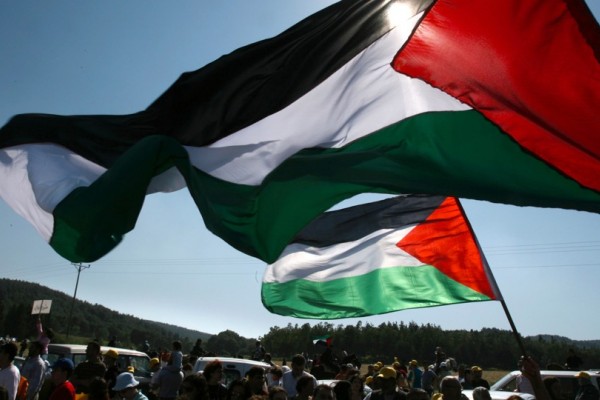-

Royal visit perpetuating deference to unaccountable power
Until King Charles displays genuine nobility by publicly advocating for unpopular causes like stopping Israel’s Gaza genocide, he warrants no special treatment. Instead, he must be challenged to explain his preference for bland platitudes as Western governments empower brutal regimes with military, financial and diplomatic support.
-
_(cropped)_600_400_90_s_c1.jpg)
Trump’s Abraham Accords incited Hamas attack
Donald Trump’s failed 2020 Abraham Accords led directly to the October 7, 2023 Hamas attack on Israel. This agreement, initially signed by Israel, the US, the United Arab Emirates and Bahrain, was ostensibly designed to “recognize the importance of maintaining and strengthening peace in the Middle East and around the world based on mutual understanding and coexistence.”
-

Stephen Harper’s ‘moral clarity’ in defence of Israeli exceptionalism
In spite of his prime ministerial law-and-order rhetoric, citizen Harper has no time for the International Court of Justice’s conclusions on Israel’s genocidal intent in Gaza and Amnesty International on Israeli apartheid. The former PM still considers Israel a credible ally in spite of the IDF’s ongoing campaign of destruction and territorial expansion across the Middle East.
-

History contradicts claims that October 7 attacks unprovoked
Mainstream editors claim that Israel’s ongoing Gaza campaign is completely justified by Hamas’ October 7, 2023 attack. The Hamas attack killed approximately 1,200 Israelis and resulted in over 200 hostages taken and retained. Unfortunately, this “unprovoked” assault was entirely predictable given occupied Palestine’s tragic history.
-
_600_400_90_s_c1.jpg)
Canada’s UN ambassador supports Israeli expansion by peace process
Bob Rae recently stated that “the ultimate responsibility for the conduct of the [Gaza] war lies with the parties who are fighting.” In so doing, Rae, a former Rhodes scholar, ignores the United States’ pivotal role in providing Israel with weapons, money and diplomatic support. Of course, Rae’s official rhetoric must reflect Canada’s deference to US Middle East policy.
-

Hezbollah still a useful bogeyman for Israel and the US
The Israeli state is rightly concerned about the possibility of large-scale attacks from the Lebanese militia group Hezbollah. Much is made of the group’s links to Iran, Israel’s former ally and current Middle East competitor. In the subjective world of realpolitik, good and evil are defined by whether or not a given state supports the actions of another.
-

Hamas attacks on Israel inevitable
Israel strictly controls Gaza’s land borders, airspace and coastal zones with a combination of conventional military hardware and high-tech surveillance devices. It has also enforced a harsh import and export blockade since 2008. As Morgan Duchesney argues, the human costs of Israel’s brutal occupation always meant that a terrible retaliation by Hamas was inevitable.
-

Palestinian Nakba and the creation of Israel deserve equal recognition
The word Nakba is used to describe the period between 1947 and 1949, when over 700,000 indigenous Arabs were driven from their homes during a “cleansing” operation that made way for the creation of the state of Israel. Since the Nakba is intentionally excluded from mainstream narratives, most Canadians receive a narrow version of history.



